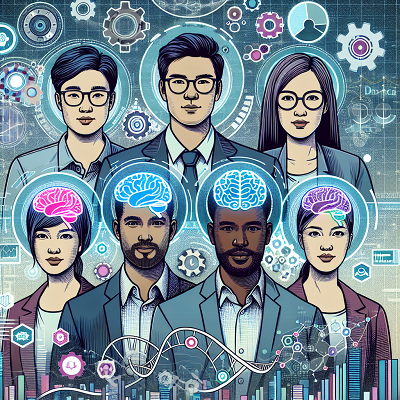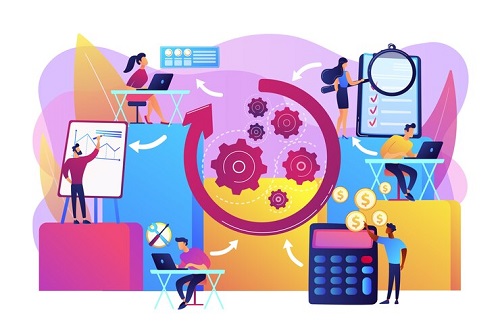In the rapidly evolving landscape of artificial intelligence (AI), machine learning (ML), and data science, the fusion of diverse expertise is not just beneficial—it’s essential. The intersection of varied perspectives and multifaceted knowledge not only drives innovation but also ensures that advancements in technology are inclusive, ethical, and human-centric. This blog delves into how diversity in expertise fuels AI and tech innovation, highlighting the power of varied perspectives, the importance of bridging gaps with multifaceted knowledge, and the role of creativity and innovation in pioneering advancements.
The Power of Varied Perspectives
The convergence of individuals from different industries and backgrounds brings a wealth of unique viewpoints to the table, leading to innovative problem-solving approaches in AI, ML, and data science projects. For instance, a healthcare professional might approach a data problem from a patient care perspective, while a retail expert might focus on consumer behavior. This amalgamation of perspectives can uncover insights that a homogenous tech team might overlook.
Breakthroughs Through Collaboration
One notable example of cross-industry collaboration leading to technological breakthroughs is Google DeepMind’s AlphaFold. By combining expertise in biology, physics, and computer science, the team developed an AI system that can predict the 3D shapes of proteins, a breakthrough that has vast implications for drug discovery and biology.
Similarly, IBM’s Project Debater showcases how bringing together experts in psychology, linguistics, and computer science can create AI capable of forming coherent arguments and engaging in debate with humans. These examples underscore how diverse expertise not only solves complex problems but also pushes the boundaries of what technology can achieve.
Bridging Gaps with Multifaceted Knowledge
The integration of expertise from fields outside of technology, such as psychology, sociology, and ethics, plays a crucial role in developing more human-centric AI and data science solutions. This multidisciplinary approach ensures that technology serves humanity’s needs and addresses ethical considerations, such as privacy and bias.
Human-Centric Solutions
For instance, incorporating insights from psychology into AI development can lead to more empathetic and intuitive user interfaces, enhancing user experience. Similarly, sociological expertise can help identify and mitigate biases in data sets, leading to fairer and more accurate AI models.
The development of ethical guidelines for AI, such as those proposed by the European Union, also highlights the importance of diverse skill sets. By involving ethicists, legal experts, and technologists in the conversation, these guidelines aim to ensure that AI development aligns with societal values and norms.
Enhancing Creativity and Innovation
The blend of technical skills with artistic or creative backgrounds fosters an environment where innovative ideas flourish. This synergy between the arts and sciences encourages out-of-the-box thinking and the exploration of unconventional solutions.
Pioneering Advancements Through Diversity
Companies like Pixar and Adobe exemplify how leveraging diverse teams can lead to groundbreaking advancements in technology. Pixar’s RenderMan, a rendering software that revolutionized 3D animation, was developed by a team comprising artists, scientists, and engineers. Similarly, Adobe’s Sensei AI leverages the creativity of designers and the precision of data scientists to enhance its creative software suite, making complex tasks more intuitive for users.
These examples underscore the importance of fostering diversity in tech teams—not just in terms of professional background but also in terms of cognitive diversity. By embracing different ways of thinking and problem-solving, companies can unlock new levels of creativity and innovation.
The synergy in diversity is not just a nice-to-have in the realm of AI and tech innovation; it’s a must-have. The fusion of varied perspectives, multifaceted knowledge, and creativity not only drives technological advancements but also ensures that these advancements are ethical, inclusive, and human-centric. As we continue to push the boundaries of what technology can achieve, let’s remember that the most groundbreaking solutions often come from the most unexpected places. By valuing and nurturing diversity in expertise, we can fuel a future where technology truly serves humanity.



